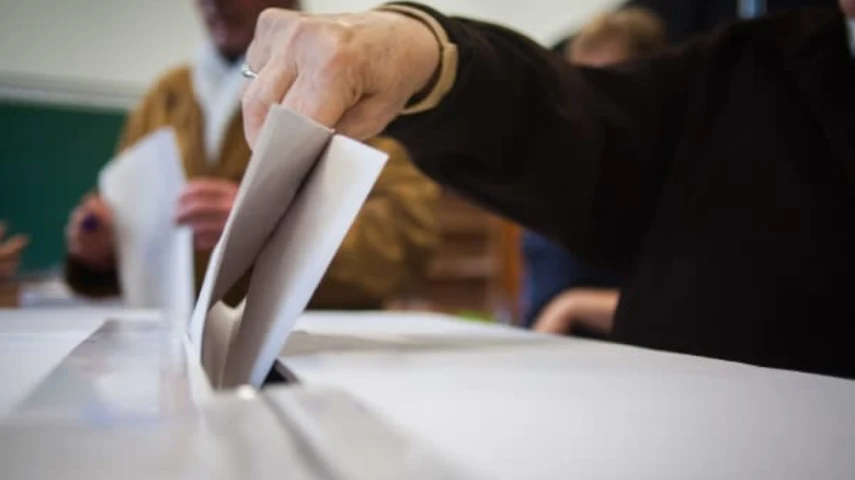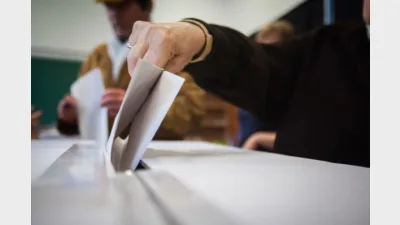Albanese calls 3 May election on the heels of Dutton’s budget in reply



Prime Minister Anthony Albanese has called a federal election for 3 May, seeking to capitalise on Labor’s recent budget, just hours after Peter Dutton outlined his economic plan and accused the government of fuelling inflation through excessive spending.
In a press conference on Friday morning, PM Albanese said: “My fellow Australians, this morning, I visited the governor-general, and Her Excellency has accepted my advice that an election be held on Saturday, 3 May 2025.
“At this election, I’m asking for the support of the Australian people to keep building on the hard work that we have done and the strong foundations that we have laid. I’m asking you to vote Labor so we can keep building Australia’s future together.”
The announcement came just hours after Dutton outlined his plan to tackle inflation, lower energy prices, and strengthen the Australian economy, accusing Labor of driving inflation through excessive spending, a practice he labelled as the government’s economic mismanagement.
“First, we will rein-in inflationary spending. Second, we will reduce the cost of energy. And third, we will strengthen the economy to work for you,” Dutton said on Thursday evening.
His proposed cost cutting measures, if elected, include scrapping Labor’s $20 billion Rewiring the Nation Fund, the $10 billion Housing Australia Future Fund, and the $14 billion allocated for production tax credits over the next decade aimed at critical minerals and green hydrogen.
Additionally, Dutton plans to reduce the number of public servants by cutting 41,000 jobs in Canberra, saying this would save $7 billion annually.
“To get inflation down, we need to address its underlying causes – and that’s just something the government hasn’t done. We want to stop wasteful government spending,” Dutton said.
“Tonight, I announce that a Coalition government will rein-in key inflationary, ineffectual, and imprudent spending – which has been a hallmark of this government.”
Dutton also vowed to slash energy prices under the Coalition’s National Gas Plan, which, he said, is all about ensuring “Australian gas for Australians”.
His strategy centres on a domestic gas reservation, requiring exporters to allocate an additional 10–20 per cent of their product to the domestic market, shielding Australians from the impact of global price fluctuations.
“We will immediately introduce an east coast gas reservation. This will require a proportion – between 50–100 petajoules of spot cargo exports – to be delivered to the domestic market,” Dutton said.
“This will secure an additional 10–20 per cent of the east coast’s demand – gas which would otherwise be exported for use in other markets for consumers in those countries.
“Gas sold on the domestic market will be de-coupled from overseas markets to protect Australia from international price shocks. And this will drive down new wholesale domestic gas prices from around $14 per gigajoule to under $10 per gigajoule.”
Among other measures, he also promised a $1 billion critical gas infrastructure fund to boost pipeline and storage capacity.
On boosting the economy, Dutton emphasised “ripping-up as much red and green tape as possible” and eliminating duplication between local, state, and federal governments.
He also vowed to revitalise key sectors such as mining, agriculture, construction, and manufacturing, believing the revenue generated would fuel investments in infrastructure, health, education, and defence.
“My intention is to make Australia a mining, agricultural, construction, and manufacturing powerhouse again,” he said.
In addition to backing Australia’s natural strengths, Dutton said a Coalition government will “encourage new areas of the economy”, like artificial intelligence, automation, cyber security, space, bio, and nanotechnologies.
Dutton also slammed Labor’s tax cuts as a “cruel hoax” and a “shameless vote-buying exercise”, saying they won’t ease cost-of-living pressures. Instead, he is pushing the Coalition’s plan to halve the fuel excise from 50¢ to 25¢ per litre for a year, saying it would save the average family $14 a week.
Meanwhile, Labor’s proposed tax cuts would see workers earning over $45,000 save just $5 a week initially, doubling to $10 by 2027.
“I think it’s insulting, to be honest,” Dutton said.
Dutton also reiterated the Coalition’s intention to allow first home buyers to access up to $50,000 of their superannuation for a home purchase.
In a statement on Thursday evening, the Super Members Council (SMC) said that granting first home buyers access to their superannuation could worsen affordability issues by driving up house prices.
“Raiding retirement savings for house deposits would just unleash a supercharged price hike in house prices, not create more new home buyers,” SMC CEO Misha Schubert said.
“That would mean home buyers in future would have to pay higher repayments on bigger mortgages for longer, worsening housing affordability and cost-of-living pressures on younger Australians.”
To read about Labor’s budget, click here.
Recommended for you
The Gateway Network Governance Body has unveiled a detailed roadmap to guide the superannuation industry through the upcoming Payday Super reforms.
CPA Australia urges the ATO to extend compliance support for small businesses facing major system changes ahead of Payday Super reforms.
Superannuation funds ramp up collective efforts to counter rising cybercrime, updating standards and sharing intelligence across the industry.
The regulator has fined two super funds for misleading sustainability and investment claims, citing ongoing efforts to curb greenwashing across the sector.









